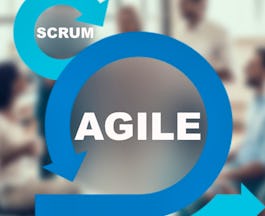Filter by
The language used throughout the course, in both instruction and assessments.
1,157 results for "software engineering"

Skills you'll gain: Machine Learning, Deep Learning, Artificial Neural Networks, Human Learning, Python Programming, Machine Learning Algorithms, Applied Machine Learning, Algorithms, Machine Learning Software, Regression, Network Model, Statistical Machine Learning, Apache, Big Data, Computer Vision, Computer Programming, Data Analysis, Network Architecture, Extract, Transform, Load, Plot (Graphics), Data Visualization, Tensorflow, Visualization (Computer Graphics), Natural Language Processing, Data Science

Skills you'll gain: DevOps, Software Engineering, Continuous Integration, Security Engineering, Kubernetes, Continuous Delivery, Software Testing, Agile Software Development, Application Development, Computer Programming, Cloud Computing, Docker (Software), IBM Cloud, Software Security, Scrum (Software Development), Cloud Applications, Leadership and Management

Skills you'll gain: Machine Learning, Deep Learning, Machine Learning Algorithms, Artificial Neural Networks, Cloud Computing, Computer Vision, Human Learning, IBM Cloud, Natural Language Processing, Algorithms, Applied Machine Learning, Machine Learning Software, Python Programming, Computer Programming, Application Development, Cloud API, Cloud Applications, Computer Programming Tools, Human Computer Interaction, Visualization (Computer Graphics), Data Analysis, Software Engineering Tools, Cloud-Based Integration, User Experience Design, Communication, Programming Principles, Software Engineering, Customer Analysis, Software Architecture, Full-Stack Web Development, Agile Software Development, Product Management, Javascript, Data Science

University of Minnesota
Skills you'll gain: Software Engineering, Agile Software Development, Design and Product, Problem Solving, Software Architecture, Software Testing, Leadership and Management, Project Management, Scrum (Software Development), Software Engineering Tools, Continuous Delivery, Product Development, User Experience, Application Development, Planning, Product Lifecycle, Collaboration, Estimation, Professional Development, Computer Programming Tools, Theoretical Computer Science, Computer Programming, Search Engine Optimization, Business Process Management

Skills you'll gain: Software Engineering, Agile Software Development, Scrum (Software Development), Leadership and Management

Skills you'll gain: Software Engineering, Application Development, Computer Programming, Security Engineering, Programming Principles, Software Architecture, Software Engineering Tools, Python Programming, DevOps, Agile Software Development, Communication, Full-Stack Web Development, Software Security, Kubernetes, Cloud Applications, Docker (Software), IBM Cloud, Product Management, Web Development, Linux, Cloud Computing, Collaboration, Leadership and Management, Data Analysis, Django (Web Framework), SQL

Google
Skills you'll gain: User Experience, User Experience Design, User Research, Audit, Human Computer Interaction, Planning, Product Design, Product Development, Visual Design, Web Design, Web Development Tools
 Status: Free
Status: FreeThe University of Edinburgh
Skills you'll gain: Algorithms, Computer Programming, Problem Solving, Computer Graphics, Creativity, Decision Making, Programming Principles, Other Programming Languages, Software Engineering, System Programming

Stanford University
Skills you'll gain: Algorithms, Theoretical Computer Science, Computer Programming, Problem Solving, Graph Theory, Mathematics, Data Structures, Computational Thinking, Mathematical Theory & Analysis, Critical Thinking, Computational Logic, Programming Principles, Software Engineering

Skills you'll gain: Computer Programming, Software Engineering, Software Engineering Tools, Application Development, Communication, Programming Principles, Software Architecture, Agile Software Development, Web Development, Javascript, Cloud Applications, Docker (Software), Front-End Web Development, Full-Stack Web Development, IBM Cloud, Kubernetes, Leadership and Management, Product Management, Collaboration, DevOps, Cloud Computing, Computer Science, Continuous Delivery, Continuous Integration, NoSQL, Python Programming, React (web framework)
 Status: Free
Status: FreeCoursera Project Network
Skills you'll gain: HTML and CSS, Javascript, Web Design, Web Development

Google
Skills you'll gain: Data Analysis, R Programming, SQL, Spreadsheet Software, Business Analysis, Business Communication, Data Visualization, Data Management, General Statistics, Big Data, Communication, Computer Programming, Data Science, Data Visualization Software, Databases, Exploratory Data Analysis, Extract, Transform, Load, Leadership and Management, Microsoft Excel, Problem Solving, Small Data, Statistical Programming, Tableau Software
Searches related to software engineering
In summary, here are 10 of our most popular software engineering courses
- IBM AI Engineering: IBM
- IBM Applied DevOps Engineering: IBM
- IBM AI Developer: IBM
- Software Development Lifecycle: University of Minnesota
- Introduction to Agile Development and Scrum: IBM
- IBM Back-End Development: IBM
- Google UX Design: Google
- Code Yourself! An Introduction to Programming: The University of Edinburgh
- Algorithms: Stanford University
- IBM Full-Stack JavaScript Developer: IBM










